
India attempts to revive its dwindling rubber industry
Demand for rubber in India is soaring but local producers are giving up their money-losing plantations.
2023-06-09 07:18

Where is Kathleen Turner now? '80s icon overcame a devastating diagnosis to regain independence
Kathleen Turner has overcome many health struggles, including rheumatoid arthritis, which forced her to step back from acting at 39
2023-06-16 15:29
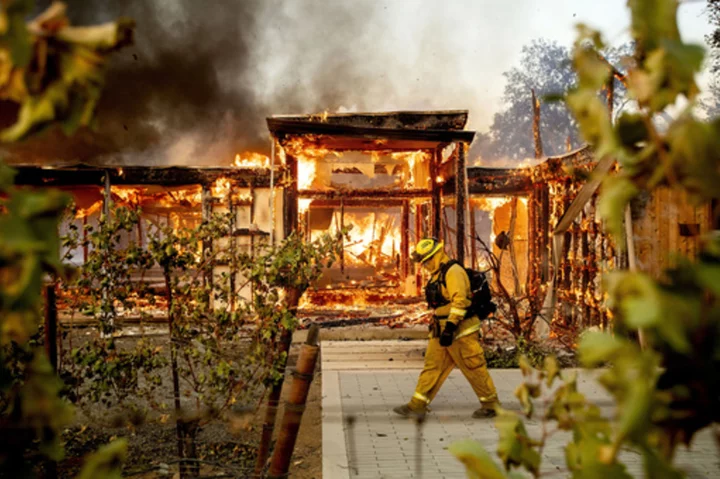
Wildfire-prone California to consider new rules for property insurance pricing
A new plan from California's insurance commissioner aims to keep the nation' stop insurers from leaving the wildfire-prone state
2023-09-22 06:50
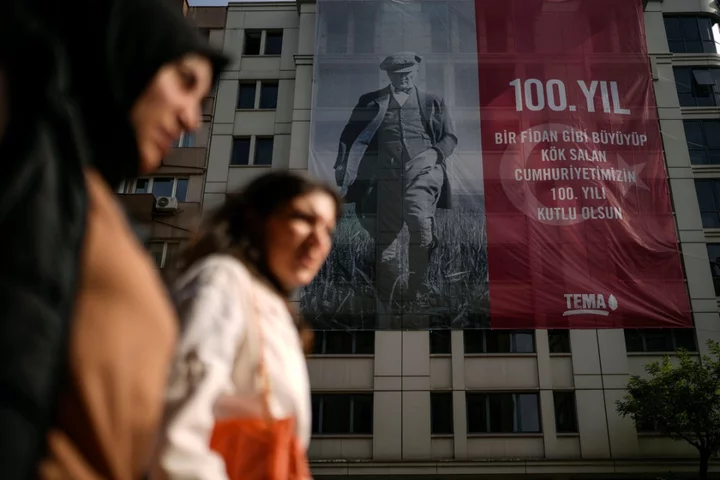
As modern Turkey turns 100, what’s next for Kemal Ataturk’s republic
The Turkish Republic, founded from the ruins of the Ottoman Empire by the national independence hero Mustafa Kemal Ataturk, turns 100 on Sunday, October 29. Ataturk established a Western-facing secular republic modeled on the great powers of the time, ushering in radical reforms that abolished the caliphate, replaced the Arabic script with the Roman alphabet, gave women the vote and adopted European laws and codes. Turkey has, however, taken on a more conservative character under the two-decade-old rule of President Recep Tayyip Erdogan, whose party has roots in the country's Islamic movement and who has become Turkey's most influential leader since Ataturk. The centennial offers Erdogan, re-elected for a third term in May, a chance to redefine the country and propel it into a new era he has dubbed “Turkey’s Century.” Here is a look at some of the republic’s greatest accomplishments, and controversial realignments as it embarks on its second century. Religious identity The secular vs. conservative debate remains one of the most contentious cultural divides in Turkey. Ataturk, the nation’s founding father, envisioned a secular country as a prerequisite to modernity. Over the decades, the separation of religion and state became a deeply ingrained ideology. The country went on to impose bans on headscarves in schools and public institutions, brought restrictions on religious education, adopted liberal policies on alcohol, and even converted the main Ottoman imperial mosque, the Hagia Sofia, into a museum. All these policies have been reversed under Erdogan, who has shifted the country toward conservatism. Now official functions open with prayers, the Directorate of Religious Affairs has been given a budget which dwarfs most ministries, the number of religious schools have increased and even Erdogan’s unorthodox economic policy of reducing interest rates - abandoned recently - was justified on religious grounds. “Ataturk was a ... top-down politician who believed in social engineering and he wanted to refashion Turkey as a secular, West-facing, European society," said Soner Cagaptay, an expert on Turkey at the Washington Institute and author of several books on Erdogan. "Erdogan, too, believes in top-down social engineering. While his method is similar to that of Ataturk, his values are almost the exact opposite.” Diplomacy The Western-oriented country joined NATO in 1952 and is officially a candidate to join the European Union - although the membership negotiations have now come to a standstill. Turkey’s interests generally aligned with those of Western countries for much of the 20th century. In recent years, however, Turkey has adopted a much more assertive foreign policy which aims to extend Ankara’s reach both regionally and worldwide. This new independent diplomacy is just as likely to pit Turkey against Western interests as it is to align with them. One recent point of tension between Turkey and the West has been in Syria, with Turkey frequently launching attacks against local Kurdish forces which Europe and the United States consider allies and Turkey considers as off-shoots of the outlawed Kurdistan Workers’ Party, or PKK. Turkey now controls large swaths of territory in Syria and speaks of creating a buffer zone along its borders with Syria and Iraq against Kurdish fighters. Following Russia’s invasion of the Ukraine, both Sweden and Finland decided to abandon their long-standing neutrality and join NATO. Yet Turkey became the main holdout against Swedish membership, accusing Sweden of being too soft toward the PKK and other groups outlawed by Turkey. Turkey’s new, pragmatic foreign policy also extends to its relations with Russia, a major trading partner. While most NATO countries took a strong stance against Moscow over its invasion of Ukraine, Ankara has maintained close ties even as it opposes the war. While impeding NATO’s cohesion, Turkey’s non-alignment does put it in a unique position where it can act as mediator in global conflicts, including the war in Ukraine. Cagaptay sees similarities in Ataturk's and Erdogan's goals of wanting to turn Turkey into a great power. But whereas Ataturk decided to embrace and copy policies of European powers of the time, Erdogan “has no interest in folding Turkey under Europe and believes he can achieve this on his own,” Cagaptay said. Defence industry Turkey faced arms embargos after its 1974 invasion of Cyprus following a coup by supporters of union with Greece, and over its military offensive against Kurdish groups. More recently the country was kicked out of a U.S.-led fighter jet program over its purchase of a Russian missile defense system that angered NATO allies. Restrictions on arms sales, however, are becoming less and less of a burden, because of Turkey’s burgeoning domestic arms industry. Turkish officials maintain that Turkey’s defense industry has grown from 20 percent domestic production to 80 percent. This “local and indigenous” production ranges from rifles and tanks to assault ships and a new fighter jet, Kaan, which is planned to fly in 2028. Turkey has also become a major exporter of arms, most notably its domestically manufactured combat drones. Turkish-manufactured drones have made it into the arsenals of many countries, including Ukraine, the United Arab Emirates, Poland and Azerbaijan. Bayraktar drones, owned and designed by the family of Erdogan’s son-in-law Selcuk Bayraktar, have proven particularly effective in the Ukraine war. Modernisation Ataturk’s reforms and drive to modernize helped pull Turkey out of the deep poverty it suffered when the Ottoman Empire collapsed. Today, the country is a member of the Group of 20 most developed nations. The Erdogan era has become synonymous with a far-reaching construction boom. Highways, bridges, tunnels, pipelines, airports, hospitals and countless residences have all sprung up around the country. This new infrastructure is such a source of pride and legitimacy for Erdogan's government that it is frequently brought up on the campaign trail. With Turkey actively encourages the construction boom, critics say the government has adopted a careless attitude toward its regulation. After a devastating earthquake in February, lax enforcement of building codes was blamed for the widespread destruction. Some of Erdogan’s more ambitious projects have also been points of political contention, from the giant palace built for the president in Ankara to smaller luxury palaces built around the country. His most ambitious proposal yet, a grand canal through Istanbul, has raised fears of harm to the environment and local ecosystem. Challenges Turkey's previous hundred years witnessed military coups, economic crises and a succession of often unstable governments. Today, it faces a host of unresolved issues, including the fight against Kurdish rebels, which has been going on for four decades and doesn’t look any closer to resolution despite daily military operations in Turkey, Syria and Iraq. Turkey's assertive foreign policy means its relations with neighbors swing violently between friend and foe. The recent shift from a parliamentary system to a presidential one further eroded checks and balances, consolidating authority in the president’s hands. Its democratic backsliding, especially since a failed coup in 2016, frequently grabs international attention and seriously endangers its bid to join the EU. Transparency International ranks Turkey 101 out of 180 countries in corruption. Reporters Without Borders ranks Turkey 165 out of 180 countries in press freedoms, down from 149 the previous year. Last year, the Economist Intelligence Unit ranked Turkey 103 out of 167 in its democracy index, classifying it a hybrid regime between an authoritarian state and a flawed democracy. In addition to all this, its economy has been facing a serious downturn in recent years, with inflation in the high double digits. Most experts forecast that inflation will be further exacerbated by the high costs of reconstruction following the earthquake that killed 50,000 people. Read More Pope Francis prays for a world in 'a dark hour' and danger from 'folly' of war Turkey’s president submits protocol for Sweden’s admission into NATO Separatist lined up to be Putin’s puppet leader in Ukraine ‘is shot in Crimea home’ Separatist lined up to be Putin’s puppet leader in Ukraine ‘is shot in Crimea home’ EU summit turns its eyes away from Ukraine despite a commitment to stay the course with Zelenskyy Russia-Ukraine war: Putin’s troops ‘executed for retreating’
2023-10-28 03:23
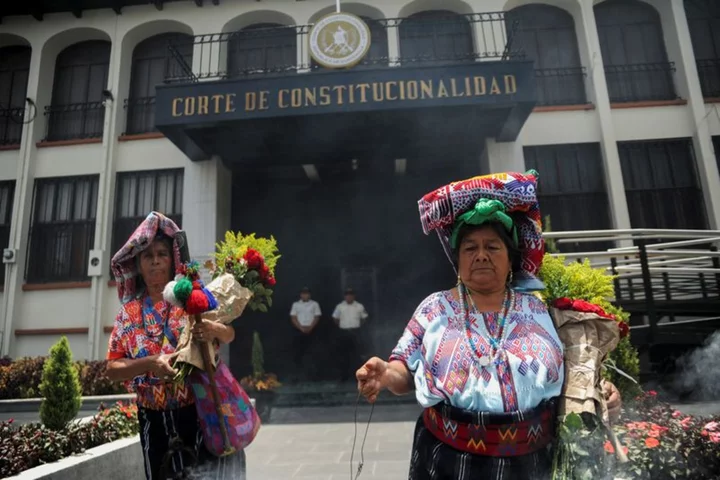
US urges Guatemala to ensure no interference in election after raid
GUATEMALA CITY Senior U.S. Department of State official Brian Nichols said on Monday he had spoken with Guatemalan
2023-07-25 02:19
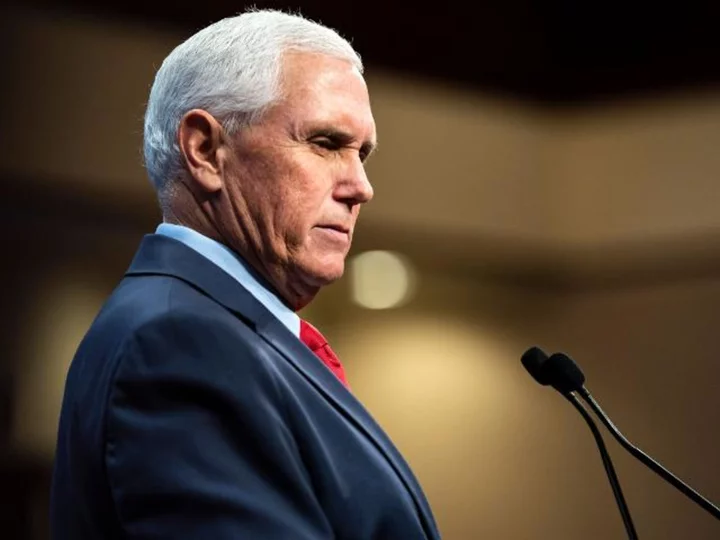
Why Mike Pence is already struggling in the presidential race
The vice presidency can be a stepping stone to the presidency. Just ask Joe Biden, who found that serving as Barack Obama's No. 2 was the ticket to winning his party's nomination for president after two unsuccessful attempts.
2023-06-08 20:57
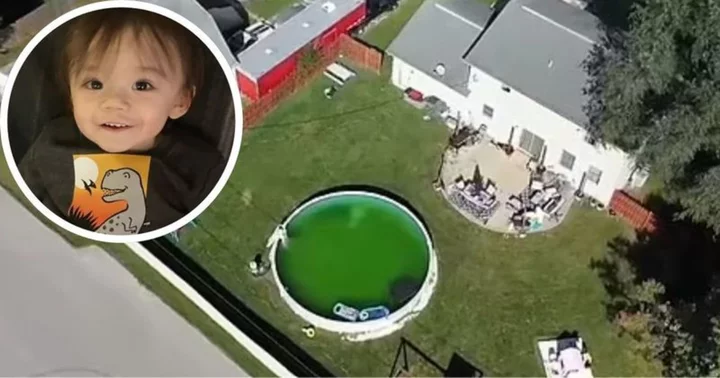
Who was Marcus Anthony Hall? Ohio toddler drowns in neighbor's pool after sneaking out as mother slept
Marcus Hall and his older brother snuck out of their home when their father was out for work and their mother was sleeping inside the house
2023-10-09 16:45
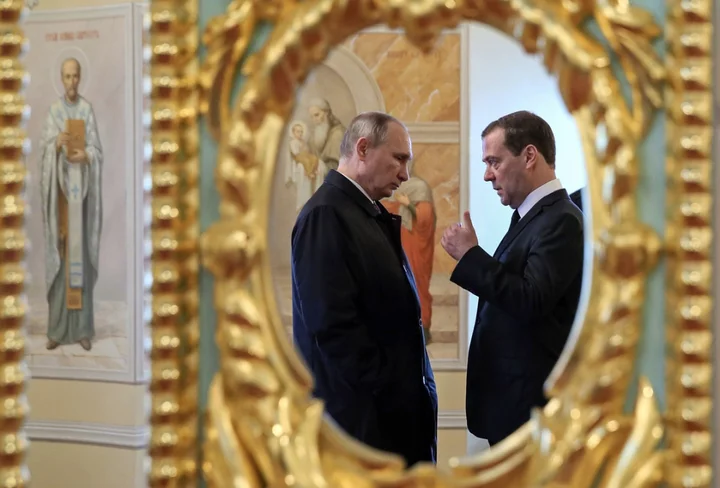
Ukraine-Russia news – live: Putin’s ally says war could last ‘decades’
The war in Ukraine could last for “decades” with long periods of fighting interspersed by truces, one of Russian president Vladimir Putin’s most senior aides has predicted. “This conflict will last a very long time, most likely decades,” former Russian president Dmitry Medvedev said during a visit to Vietnam. “As long as there is such a power in place, there will be, say, three years of truce, two years of conflict, and everything will be repeated,” the deputy chairman of Putin’s powerful security council continued, while reiterating Moscow’s claim that Ukraine is a Nazi state. On the frontline, Russia’s Wagner mercenaries have started handing over positions in Bakhmut to the regular Russian military, five days after claiming to have completed the capture of the devastated eastern Ukrainian city. But Ukrainian deputy defence minister Hanna Maliar said Wagner has only handed over positions on the city’s outskirts and “inside the city itself Wagner fighters remain”. Wagner chief Yevgeny Prigozhin has said he is ready to return his forces to Bakhmut if the regular army is struggling. Read More Wagner chief launches scathing new attack on Putin’s war strategy Nato chief says Ukraine should not join alliance until Russia’s invasion is over Nobel peace laureate transferred to brutal prison in Belarus, his wife says
2023-05-26 12:53
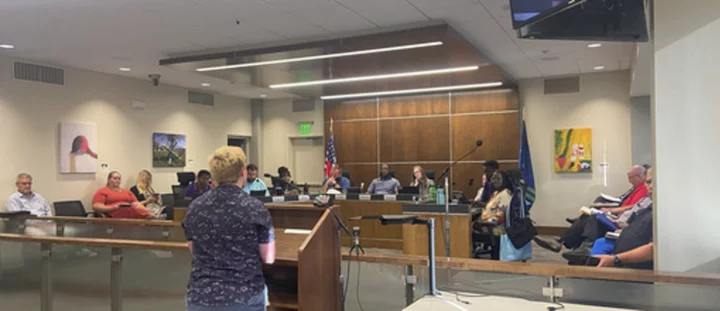
In Iowa and elsewhere, bans on LGBTQ+ ‘conversion therapy’ become a conservative target
One of Iowa’s largest cities is the latest municipality to repeal its ban on so-called LGBTQ+ conversion therapy
2023-08-26 03:53
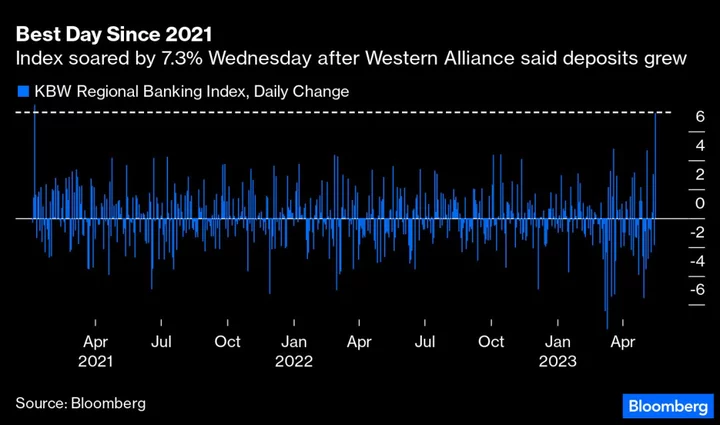
Asia to Follow US Stock Gains on Debt-Ceiling Bets: Markets Wrap
Asian equities were headed for gains after US stocks rallied on signs of optimism from debt-ceiling talks, allowing
2023-05-18 07:54
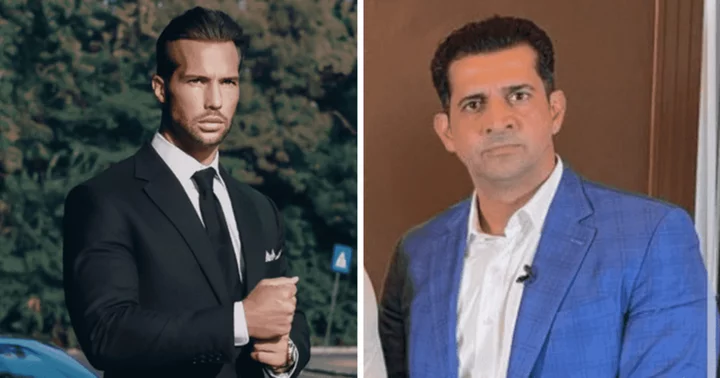
Tristan Tate shares jail experiences in riveting podcast chat with Patrick Bet-David: 'I'm a very strong-minded person'
Tristan Tate was detained in Romania for almost three months with his brother Andrew Tate for charges of rape, human trafficking, and organized crime
2023-06-25 19:27
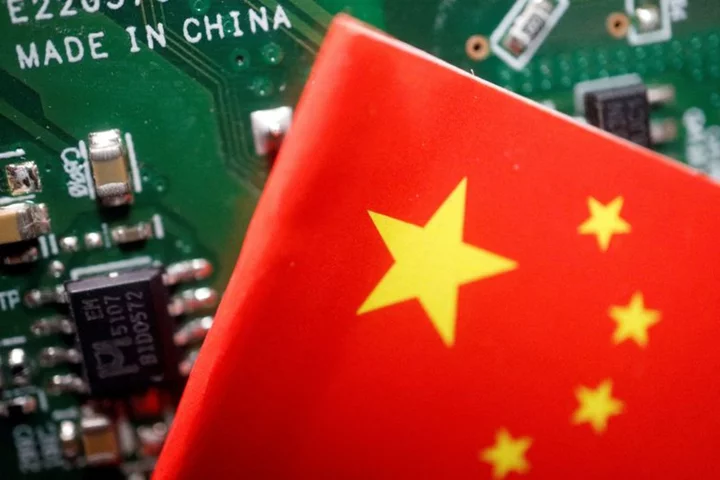
US investors want clarity on Biden's vague curbs on China tech
By Pete Schroeder, Michelle Price and Carolina Mandl WASHINGTON/NEW YORK U.S. financial firms are pushing for greater clarity
2023-09-27 18:15
You Might Like...

Who was Melissa Bagley? Massachusetts woman dies trying to save her 10-year-old son from drowning at a waterfall

Manhattan real estate brokerages are sued for inflating commissions

Amazon workers stage walkout over company's climate impact, return-to-office mandate
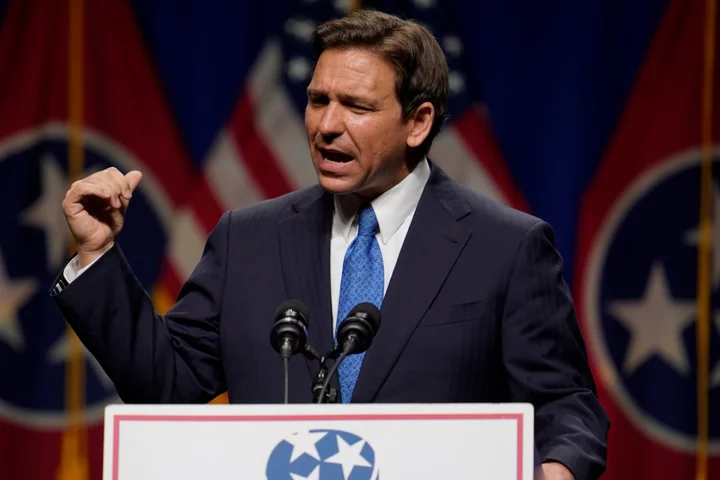
Ron DeSantis campaign fires staff as Florida governor trails Trump in the polls
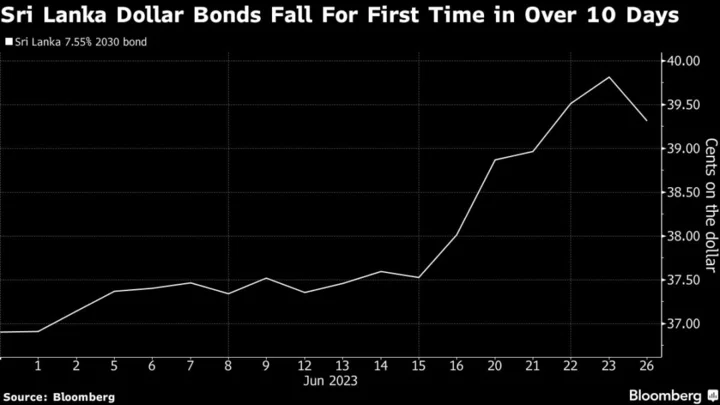
Sri Lanka to Unveil Domestic Debt Restructuring Plan This Week
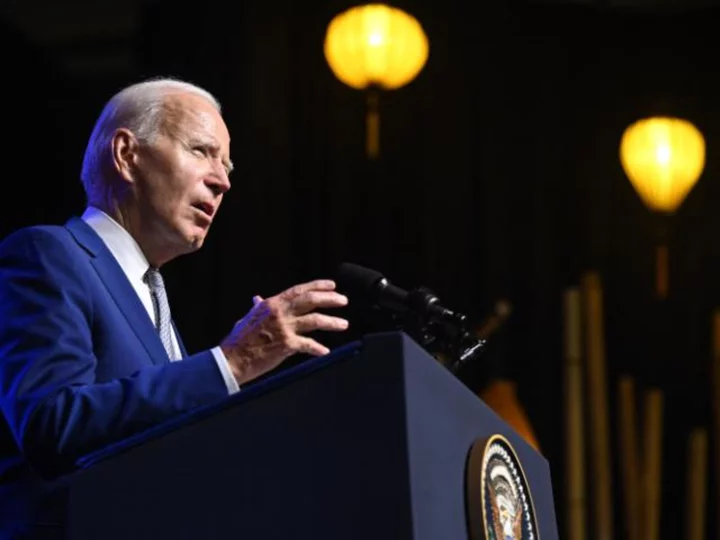
Biden focuses on his domestic agenda and efforts to end cancer amid McCarthy's impeachment inquiry announcement

Where is Matthew Perry's dog? Lisa Kudrow wants to adopt late 'Friends' co-star and close friend's pet Alfred
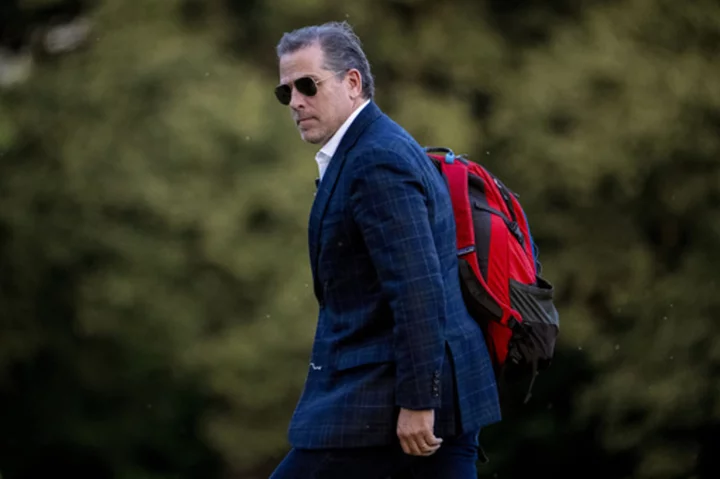
Biden's son Hunter heads to a Delaware court where he's expected to plead guilty to tax crimes
